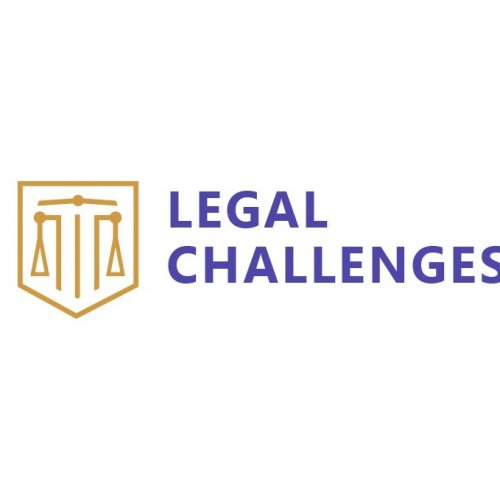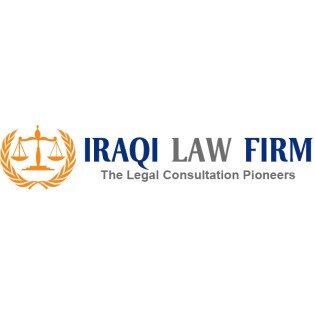Best Private Equity Lawyers in Iraq
Share your needs with us, get contacted by law firms.
Free. Takes 2 min.
Or refine your search by selecting a city:
List of the best lawyers in Iraq
About Private Equity Law in Iraq
Private equity refers to investments made directly into private companies or the acquisition of public companies that result in their delisting from stock exchanges. In Iraq, the private equity market is relatively new but shows potential for growth as the country continues to rebuild and attract foreign investment. Private equity firms and investors often seek opportunities in sectors such as energy, infrastructure, telecommunications, and consumer goods. Navigating private equity transactions in Iraq requires an understanding of both local regulations and the evolving business climate, making legal guidance essential for successful ventures.
Why You May Need a Lawyer
Seeking a lawyer when dealing with private equity matters in Iraq is highly recommended due to the complexity of local laws and regulations. Common situations where legal assistance is essential include:
- Conducting due diligence on potential acquisition targets
- Drafting and reviewing investment agreements and shareholder arrangements
- Ensuring compliance with foreign investment laws and sector-specific regulations
- Structuring deals to optimize tax efficiency and minimize risk
- Handling disputes between investors, management, or partners
- Navigating regulatory approvals for mergers or acquisitions
- Advising on exit strategies, such as public offerings or sales of portfolio companies
A knowledgeable lawyer can help protect your interests, ensure compliance with national and international regulations, and streamline the investment process.
Local Laws Overview
Private equity activity in Iraq is primarily governed by a mix of company law, investment law, and sector-specific regulations. Some of the key legal aspects to be aware of include:
- Investment Law: Iraq’s Investment Law No. 13 of 2006, as amended, sets out the main framework for foreign and local investments, providing incentives such as tax breaks, land allocation, and guarantees against expropriation.
- Corporate Structures: The Companies Law No. 21 of 1997 allows for various company forms, including Limited Liability Companies (LLCs), Joint Stock Companies, and branches of foreign firms. Choice of structure impacts governance and liability.
- Regulatory Approval: Some sectors require prior approval from the National Investment Commission (NIC) or Provincial Investment Commissions (PICs) and, in certain cases, sector-specific bodies (such as in oil and gas).
- Foreign Ownership: Generally, foreign investors can own up to 100 percent of companies in most sectors, but there are exceptions and practical limitations in the strategic sectors, including oil, banking, and insurance.
- Dispute Resolution: Contracts may provide for arbitration or local court jurisdiction. Iraq is a signatory to the New York Convention, allowing for recognition of foreign arbitral awards subject to certain conditions.
- Exit and Taxation: Exit strategies should consider capital gains taxes, repatriation of profits, and any sector-specific restrictions or requirements.
Frequently Asked Questions
What is private equity, and how does it operate in Iraq?
Private equity involves the investment of funds in privately held companies or in acquiring publicly traded companies to make them private. In Iraq, private equity operations are emerging with increased interest from domestic and international investors, particularly in reconstruction and development projects.
Are foreign investors permitted to participate in private equity deals in Iraq?
Yes, foreign investors are generally permitted in most sectors under the Investment Law. However, there can be restrictions in sectors of strategic importance such as oil and banking, where additional approvals or local partnerships may be required.
What legal forms of business structures are suitable for private equity in Iraq?
Private equity firms and investment vehicles often use Limited Liability Companies (LLCs) or Joint Stock Companies due to their flexibility in terms of governance and profit distribution.
How are private equity transactions regulated in Iraq?
Such transactions are governed by a combination of the Companies Law, Investment Law, and other applicable sectoral regulations. Regulatory approvals may also be required depending on the type and sector of the transaction.
What are the common regulatory challenges in private equity deals?
Challenges include obtaining necessary investment licenses, navigating foreign ownership limitations, securing land rights, and ensuring compliance with labor and tax regulations.
Can private equity investors repatriate profits and capital back to their home country?
Generally, profits and invested capital can be repatriated, subject to compliance with local tax and currency transfer regulations. The Investment Law provides guarantees for repatriation of profits and capital for qualifying projects.
How can risks be mitigated in private equity investments in Iraq?
Risks can be mitigated through thorough due diligence, clear contractual arrangements, dispute resolution mechanisms, appropriate company structuring, and ongoing legal compliance with local laws.
What due diligence should be done before investing in an Iraqi company?
Due diligence should include reviewing company documents, financial statements, regulatory compliance, title to assets, existing liabilities, labor matters, and confirming the standing of the company with local authorities.
Is arbitration available for resolving disputes in private equity agreements?
Yes, parties may agree to submit disputes to arbitration, including international arbitration. Iraq’s ratification of the New York Convention supports recognition of foreign arbitral awards, although certain local requirements apply.
What exit options are available to private equity investors in Iraq?
Common exit options include selling the company to another investor, public offerings on local or regional stock exchanges, or structured buybacks by management or co-investors. Each may be subject to local regulations and practical market considerations.
Additional Resources
When seeking further information or assistance related to private equity in Iraq, you may consider reaching out to the following organizations:
- National Investment Commission (NIC): The main body overseeing foreign and domestic investment projects in Iraq.
- Provincial Investment Commissions (PICs): These offices regulate and approve local investment deals at the governorate level.
- Iraqi Bar Association: For referrals to qualified local lawyers specializing in corporate and investment law.
- Iraqi Securities Commission: The regulator for capital market activities, public offerings, and securities-related matters.
- Ministry of Trade: Handles business registrations, commercial agencies, and trade licenses.
- Chambers of Commerce: Can provide business networking, regulatory updates, and sector-specific information.
Next Steps
If you require legal assistance in the field of private equity in Iraq, consider taking the following steps:
- Identify and consult with a qualified local lawyer who has experience in private equity, investment law, and cross-border transactions.
- Prepare and organize relevant documents regarding your intended investment, including business plans, identification, and financial records.
- Discuss your objectives, risk appetite, and preferred deal structure with your legal advisor.
- Request a detailed explanation of the regulatory requirements, possible hurdles, and expected timelines for your proposed transaction.
- Ensure that any agreements, especially with local partners, are reviewed and drafted by your lawyer to protect your interests.
- Regularly monitor legal and market developments that could impact your investment and seek advice as needed to stay compliant.
Taking the right legal steps can help you navigate the intricacies of the Iraqi market and achieve your private equity investment goals securely and efficiently.
Lawzana helps you find the best lawyers and law firms in Iraq through a curated and pre-screened list of qualified legal professionals. Our platform offers rankings and detailed profiles of attorneys and law firms, allowing you to compare based on practice areas, including Private Equity, experience, and client feedback.
Each profile includes a description of the firm's areas of practice, client reviews, team members and partners, year of establishment, spoken languages, office locations, contact information, social media presence, and any published articles or resources. Most firms on our platform speak English and are experienced in both local and international legal matters.
Get a quote from top-rated law firms in Iraq — quickly, securely, and without unnecessary hassle.
Disclaimer:
The information provided on this page is for general informational purposes only and does not constitute legal advice. While we strive to ensure the accuracy and relevance of the content, legal information may change over time, and interpretations of the law can vary. You should always consult with a qualified legal professional for advice specific to your situation.
We disclaim all liability for actions taken or not taken based on the content of this page. If you believe any information is incorrect or outdated, please contact us, and we will review and update it where appropriate.
Browse private equity law firms by city in Iraq
Refine your search by selecting a city.

















